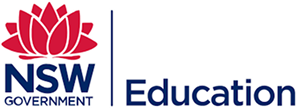We bring AI and human ideas together to bridge the gap between the two.
Using a combination of human and GenAI abilities, Mindhive harnesses the power of groups to make effective decisions.
Market leader
Mindhive is used by various education entities, including government agencies, universities, businesses, and non-profit organisations, to improve efficiency in their industry partnerships. By using this platform, they can maximise their research and educational assets, engage students more effectively, foster academic and teaching advancements, and facilitate better teamwork. Moreover, it offers convenient access to industry expertise whenever it is needed.
"Unlocking Success: Transforming Graduates into Industry-Ready Innovators in Advertising and Marketing"
This case study highlights a Mindhive discussion led by Gayle Kerr, focusing on the transition of graduate students to the advertising and marketing industry. The discussion aimed to identify the skills needed by new graduates, provide advice for employability, and explore innovative research methods using collective intelligence. With participation from industry leaders and experts, the discussion generated 75 comments and 11 ideations, offering valuable insights and actionable advice for students seeking to improve their employability. The findings were then used by Gayle Kerr to deliver a lecture at QUT, helping students develop their career strategies.
“Education Queensland hosted a medium-long term challenge seeking ideas for improved teaching outcomes across 1000 principals.”
Education Queensland
“Engaged in thoughtful discussion with partners pre and post its annual conference”
Cooperative Research Centre Association of Australia.
Brisbane is a city that is vulnerable to floods. After experiencing devastating floods in 1974 and 2011, QUT decided to focus on finding ways to improve our readiness for future occurrences. To do this, they brought together a diverse group of experts, including technology providers, insurance companies, government agencies, and hydro-engineers from the Netherlands. Using MindHive, they collaborated to envision what a flood in 2036 could be like and how technology could play a crucial role in guiding response efforts.
The process began with QUT hosting an event to generate enthusiasm and kickstart the project through face-to-face interactions. This was followed by moving the discussions to Mindhive, where the team worked on developing three separate solution papers for the different stages of a flood: before, during, and after. By opening up the challenge to the MindHive community, they were able to attract a diverse range of expertise and gather more input. MindHive provided a hub for resources and a workspace for individuals with varying backgrounds, working styles, and knowledge to collaborate effectively.
According to a QUT representative, MindHive offered enhanced visibility and information-gathering capabilities, making it easier to facilitate the collaboration between academics, public servants, and industry partners. Having everyone in one digital space proved to be beneficial. The team behind MindHive provided excellent support, and they are excited to see how the platform will help them further develop insights about floods.
Piet Filet,
Research Development Officer Queensland University of Technology
The project "Evaluating Communication for Development: supporting adaptive and accountable development" will run for 3 years (from September 2014 to 2017). It aims to explore how a flexible, adaptive approach to evaluating C4D can be integrated with the growing focus on results-based management. The project involves collaboration between RMIT University, UNICEF C4D, University of Hyderabad, Mindhive, and the Eidos Institute. To facilitate discussions, the ECD team utilized MindHive to coordinate online asynchronous discussions among their International Expert Advisory Group (IEAG). This allowed the familiar group members to engage in a closed discussion over a month-long period, contributing from their various locations around the world. The ECD team also posted a topic on the general MindHive community to gather broader feedback on specific questions.
The extra advantage for us with using Mindhive was the increased sense of the IEAG discussions as an ‘event’ over the month it was open (compared to say, comments in a Google doc). We also posted a Topic, and that was really positive – unlike most blog posts I’ve ever published, we got very quick, highly relevant and sophisticated comments back from the Mindhive community.”
Dr Jessica Noske-Turner,
Royal Melbourne Institute of Technology
What people are saying
“Mindhive provided us with enhanced visibility and information gathering capability. We used the platform to facilitate a project that involved collaboration and participation from the academics, public servants and industry partners. It is helpful to be able to have everyone in one digital room. The team behind MindHive was extremely helpful and supportive and I am looking forward to see how the platform allows us to build the flood insights further.”
Piet Filet,
Research Development Officer Queensland University of Technology
“My take away revolved around the very logical and appealing idea of value creation within the ecosystem. Maximising and optimising the interaction within and between the various bubbles of knowledge/value creation within the ecosystem as a way of harnessing the full the potential. The value of engaging with the outside world on specific collaboration and how that helps the ecosystem develop its full potential. I see great value in universities and research providers in general engaging with this approach as a way of maximising their impact. In general, we focused a lot on knowledge generation but not enough on value creation which is essential for addressing the impact aspiration for our research. Whatever it is, the way you tell your story online can make all the difference.”
Anas Ghadouani BSc MSc PhD,
Professor and Head, Aquatic Ecology and Ecosystem Studies; Programme Chair for Environmental Engineering; Editor, Hydrology and Earth System Sciences; School of Civil, Environmental and Mining Engineering, The University of Western Australia
Carry out solutions.
NSW Education Department
The NSW Department of Education employs Mindhive as a means to enhance the capabilities of its learning systems directorate. This division focuses on the future of education, incorporating innovative models that facilitate teaching beyond traditional classroom settings. Mindhive serves as a collaborative platform for employees to monitor best practices, generate initiatives, and engage with experts on a wider scale.
University of Western Australia
The Social Impact Centre at the University of Western Australia is initiated a Mindhive to address youth homelessness. Building on the success of their Social Impact Festival, they brought together service providers, advocates, and the community to effectively tackle homelessness in WA. Collaborating with those directly impacted by the issue is a key aspect of the Social Impact Centre's work, making the use of Mindhive a natural next step in creating a transparent and inclusive space.
Meet with Mindhive team
Explore how Mindhive can support your organisation with AI-powered insights, collaboration tools, and community access.



















